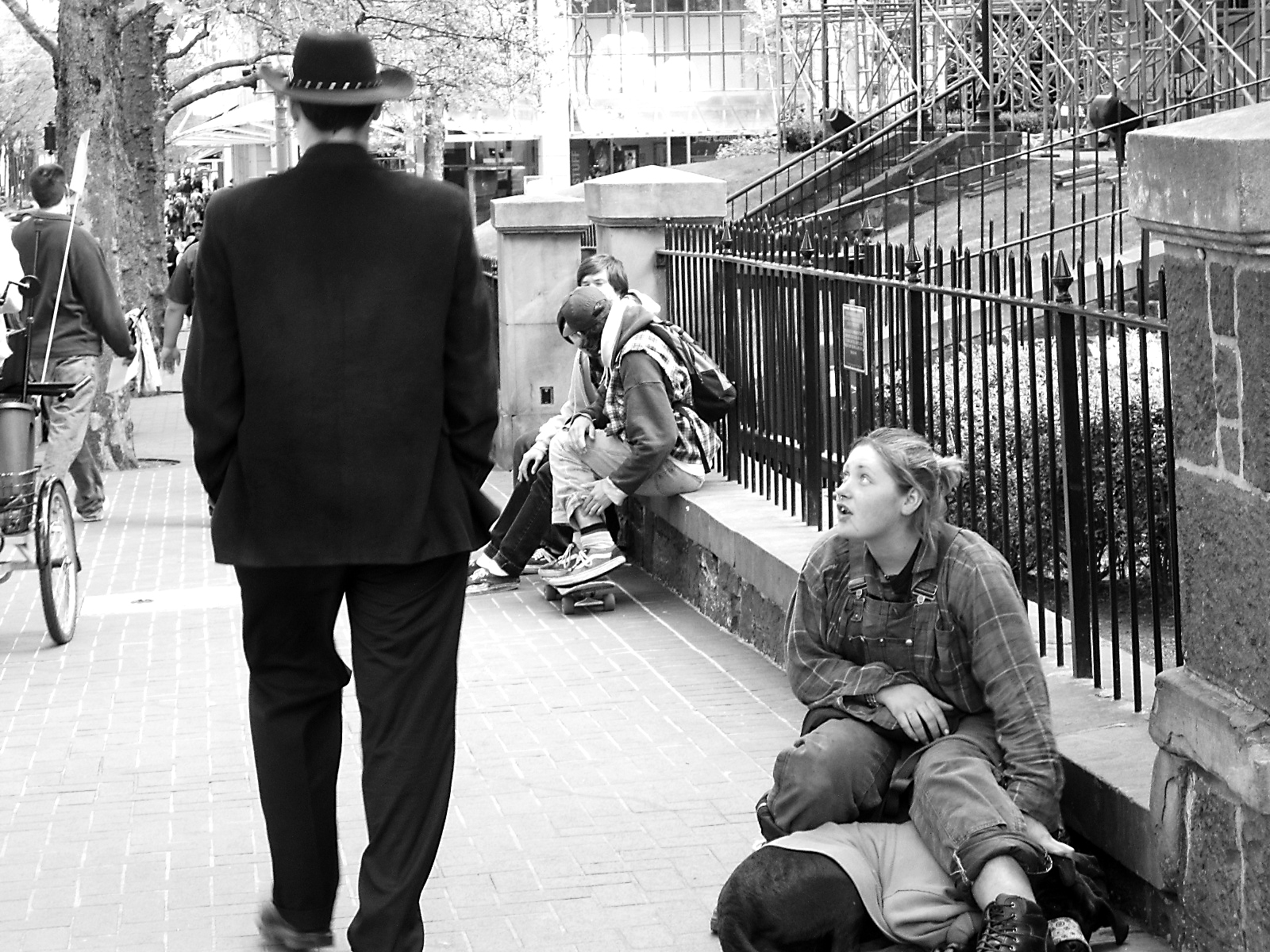Young voters formed the backbone of President Barack Obama’s coalition, but the recession in Obama’s economy has left “workers between the ages of 18 and 24 with the highest unemployment rate of all adults” and, as a result, a record number of young people–even those with college credits and work histories–are becoming homeless. They have been forced to live in shelters, sleep on couches, or live on the streets.
The New York Times profiled the homeless young and concluded “those who can move back home with their parents — the so-called boomerang set — are the lucky ones,” but that is often not an option for some who have to couch surf or sleep “hidden away in cars or other private places, hoping to avoid the lasting stigma of public homelessness during what they hope will be a temporary predicament.”
Young people who are homeless fear they will be “victimized by an older, chronically homeless population” if they go to shelters. In addition, many of the homeless shelters have traditionally been directed to “dependent children and older people,” which is why there is “scant attention focused on what experts now call “transitional age youth” — young adults whose needs are distinct.”
The problem is intensifying as young adults cannot find jobs or are being laid off from the, and the “Obama administration has begun an initiative” in cities like New York, Houston, Los Angeles, Cleveland and Boston to combat the problem that Andrae Bailey, the executive director of the Community Food and Outreach Center in Florida, said was once rare but now is a “normal thing.”
The Times profiles Lance Fuller, 26-year-old with a degree in journalism, who has had to stay with his girlfriend until he can find a new job. He said “it’s really hard for people in my generation not to feel completely defeated by this economy.”
But according to those who have been doing outreach to the young homeless, they do not want to be in a perpetual state of dependency and “want a way out” and an “an opportunity to develop skills so they are marketable in the long term.”
One barrier to finding a “way out” may be that some of the young homeless want to live in blue states or urban areas with like-minded liberals where high taxes have destroyed jobs and sent people fleeing to more business- and tax-friendly states.
Consider Roman Tano, 20, whom the Times profiles. While people from blue states like California are heading to Texas and North Dakota to find jobs and escape California’s regulations and taxes, Tano left Texas after losing his job and headed to Washington state, giving up “an apartment in his native Dallas after losing his job,” and selling his Toyota.
When he could not initially find a job in Washington, Tano “ended up sleeping on the street for the first time in my life” and “had to walk around and try to stay warm.”
According to the Times, Tano found the YouthCare shelter online, was able to stay there for a month, and has found a job as a canvasser for an “environmental organization.”

COMMENTS
Please let us know if you're having issues with commenting.